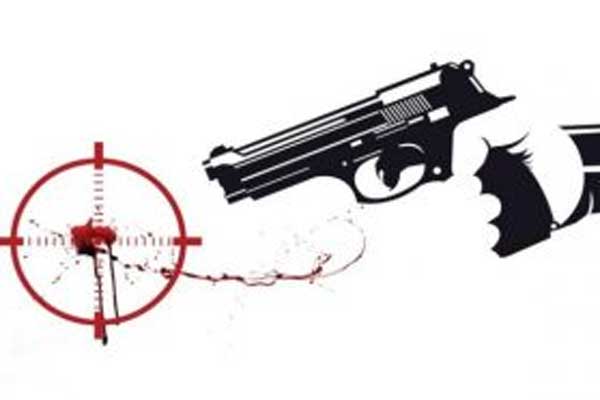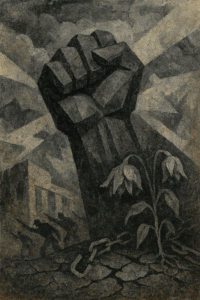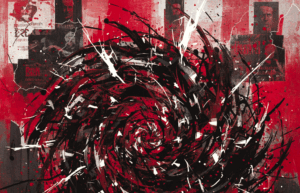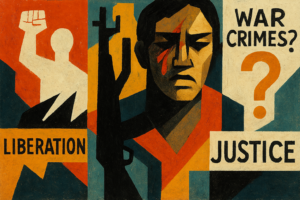
This post has already been read 42 times!
Since the government launched the so-called “anti-drug drive” in early May, akin to the Philippines’ “war on drugs”, more than one hundred people have been subjected to extrajudicial killings. Although the number and pace of these killings, described by the government as “gunfight”, have been staggering, extrajudicial killing is not a new phenomenon in Bangladesh. It has become a familiar tool of government for more than a decade. The number of people killed in 2016 stood at 156; in the year before, at least 178 people lost their lives at the hands of law enforcing agencies. All along, the members of the ruling party and law enforcing agencies rejected these allegations.
This time around, an audio recording of an AL leader’s last-minute conversations with his family over telephone before being killed by the Rapid Action Battalion has engendered emotional reactions across the country and emerged as unambiguous evidence of what was already known to many for years—that most of these crossfires/encounters/gunfights, whether against the militants, opposition activists or petty criminals, were staged.
It is in this context that the Secretary General of the ruling party, Obaidul Quader, made the comment that “one or two ‘mistakes’ may happen during such drives”. This comment, however callous it may sound, is regrettably too familiar. This government and its predecessors, since 2004, never acknowledged these incidents as extrajudicial killings, let alone take responsibility.
There is no dearth of reminding the incumbent of what it said prior to coming to power. In March 2005, a newsletter of then-opposition Awami League, in the context of the establishment of the Rapid Action Battalion (RAB) by its arch-rival the BNP and the operations of the RAB, read, “These forces have been given so much power and authority that they have blatantly disregarded constitutional provisions, human rights laws as well as court law. Almost every day they are catching people on different false charges, and are brutally murdering them, covering it by calling it ‘crossfire deaths’. The victims are not tried or given any opportunity for self-defence.” Additionally, many have pointed to the promise made in the 2008 election manifesto: “Extrajudicial killings will be stopped.” But none of this has deterred the ruling party from legitimising these extrajudicial killings over the years.
The culture of impunity has continued as the ruling party has increasingly become more reliant on the force as the principal mode of governance and authoritarianism has become the defining feature of the current system. The rhetoric and actions of the ruling party have emboldened those who are blatantly disregarding the fundamental rights enshrined in the constitution and engaged in wanton killings. The government not only describes these victims as “drug dealers” but implicitly argues that as a menace to society, these citizens are not worthy of due process. Their words and attitudes have, essentially, acted as an indemnification of these acts.
The leaders of the ruling party and members of the government, by engaging members of law enforcement agencies in these acts, have ostensibly disregarded the court of the land. We may recall that the High Court, in a verdict in September 2016 regarding indemnification of the members of the law enforcing agencies, reminded us the very foundation of the rule of law: “no one is above law, and everybody is subject to law.” The observation was made while delivering the verdict on the writ petition regarding the “Joint Drive Indemnity Act, 2003.” The Indemnity Act was passed by the parliament after engaging members of the army and law enforcement agencies in a security operation called “Operation Clean Heart”, an operation akin to the current anti-drug drive. The operation was conducted under the BNP-led government from October 16, 2002 to January 9, 2003. On February 24, 2003, the government enacted the “Joint Drive Indemnity Act, 2003” providing indemnity to all joint forces’ actions. The then government claimed that the operation was necessary for recovering illegal weapons and restoring law and order. At least 57 people died in custody and hundreds were injured by torture during the operation, while the government claimed that only 12 died of “heart attack” in hospitals after being handed over to police.
The High Court, in its full verdict released in January 2017, said: “Even a hardcore criminal has the right to be tried in the competent Court of law for his alleged perpetration of crimes. He cannot be physically annihilated or killed by the members of the joint forces for his alleged crimes.” The verdict also maintained that the law-enforcing agencies or the joint forces cannot take the law into their own hands and by doing so, they have infringed the relevant provisions of the Constitution. The court not only pointed to the criminal liabilities of the individuals but stated unequivocally that “the State cannot shy away from its responsibility for the illegal and unconstitutional actions of the public functionaries” (Dhaka Tribune, January 3, 2017). Understandably, the ruling party leaders cheered the verdict.
The disregard for fundamental rights, the constitution and the court by the government is deeply disturbing, but in the absence of an accountable political environment, limited democratic space and a heightened role of law enforcement agencies, it appears to have become the “new normal”. What is frightening is the normalisation of extrajudicial killings and rationalisation of these unlawful acts by supporters of the government. The highly polarised political environment, fear of being ostracised, of being labelled as unpatriotic and of being vilified have precluded members of the civil society to speak out against extrajudicial killings for long, particularly when political activists of the opposition parties became victims or when it was adopted as a strategy to quash militancy.
The passionate reactions to the killings of the AL leader, a welcome development, appear to be mostly about the “incident” rather than questioning the strategy of extrajudicial killings. The silence, which has increasingly turned into a social paralysis, is enabling the continuation of the phenomenon. It is time to break the silence and confront the phenomenon, rather than reacting to one incident at a time.
Daily Star, 6 June 2018
This post has already been read 42 times!





